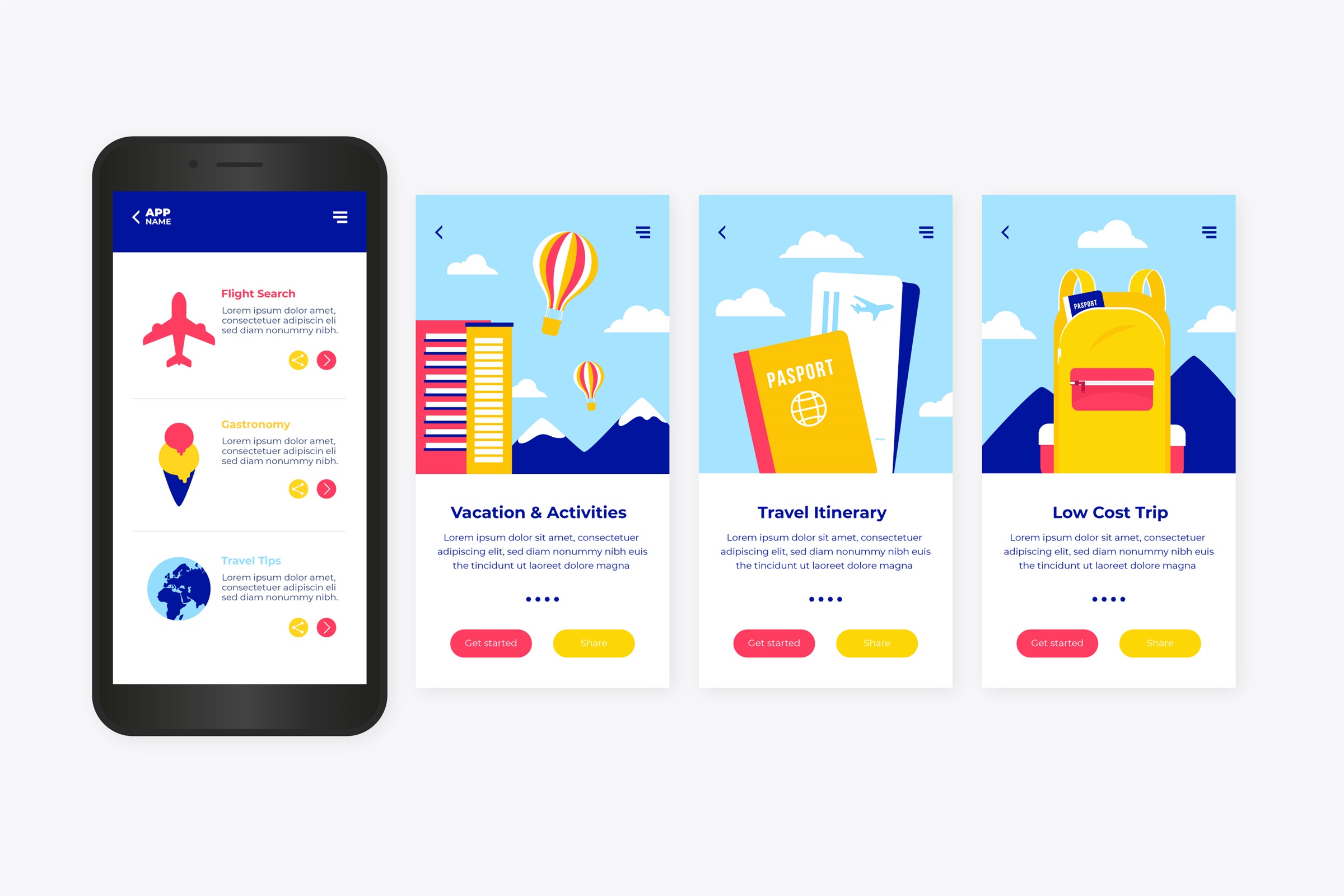
Upgrading your travel business by opting for travel app development serves two major purposes: expanding your user base and increasing revenue. While the first goal is relatively easy to achieve, the app monetization aspect can be challenging to strategize.
So, what exactly are monetization strategies for? Well, monetization strategies are responsible for the sustainable growth of your travel app. Ever since the technology and the travel business merged, the travel industry has witnessed a huge revenue shift. According to a report by Statista, travel app global revenue is projected to reach two billion dollars by 2027. That’s big, isn’t it? These numbers certainly show how travel apps are indispensable for both consumers and owners.
However, the challenge lies in developing an app and devising strategies to monetize it effectively. As we all know there are a dozen ways to monetize your application but the ones that fit best for your audience and business as a whole could be tricky to pick. For example, a gaming app would need different ways of monetization than a news application, so you would need a strategy that aligns with your business goals. Well, that’s what an experienced travel app development company does. They look for some of the best monetization strategies to help your business grow exponentially.
So, here we have listed some of the best app monetization strategies to help your business grow without hindering your operational activities.
Top 5 Travel App Monetization Strategies
In a market where the audience’s attention span is fleeting, your goal is to address both user needs and the app’s business objectives. Enhancing the user experience during app development is the first priority, with monetization being the next critical task. While there are many ways to generate revenue from a travel application, here are the top five strategies you can integrate to maximize earnings.
1. Commission fees
The fastest way to earn from a travel app is by collecting commission from listings. You can ask the hostels, hotels, and lodges to pay a certain amount to get listed on your application. You can also set amounts for priority listings on pages, where the service providers pay you for getting featured on the first page of search results.
This creates a win-win situation for both service providers and your application. You generate constant revenue from hundreds or thousands of property listings while listing owners enjoy a steady stream of customers and travelers.
2. Freemium Version
Allowing users to download a freemium version of your application can significantly broaden your user base. You can provide essential features for free while offering a trial period for premium content or advanced functionalities, which can effectively attract and convert users.
This strategy is widely used across various applications. You can offer users the option to purchase premium services or continue using the app with ads. Additionally, consider providing flexible subscription options, such as weekly, monthly, or yearly plans. This approach not only generates steady income but also builds customer loyalty.
3. Merchant Model
This approach can be considered a travel-app-specific strategy. The merchant model involves booking services such as guided tours, bus tickets, and hotel rooms in bulk. By acquiring these services directly from providers at a discounted price, you can resell them at a higher price to end users, with the profit margin entirely at your discretion.
4. In-App Purchase
You can also implement in-app purchase features in your travel app to generate income. But what would users buy in a travel app?
There are several options to consider. First, you can sell individual premium features instead of offering a single premium model. For example, users might purchase exclusive property listings at a discounted price for a specific destination if they prefer not to travel extensively. Another option is to offer premium travel guides and exclusive destination tours using in-app currency. Additionally, you could provide services like transportation options or a translator to assist travelers during check-in.
This approach gives users a sense of exclusivity by allowing them to choose and personalize their purchases. By enabling users to enhance their experience through targeted purchases, you can significantly boost your app’s profitability.
5. In-App Ads
Incorporating advertisements is one of the most basic monetization strategies for app development, and it can be particularly beneficial for travel apps. While ads can sometimes deviate user’s interest, they can also generate significant revenue.
To enhance the user experience, consider implementing user-relevant advertisements that align with the travel theme and do not disrupt the flow of your application. Collaborating with travel-related brands for sponsored content or placements can further boost your revenue while providing valuable and informative content to your audience.
Additionally, in-app advertisements can create an incentive for users to purchase a premium version of the app to avoid ads, allowing them to control their experience based on their preferences.
Conclusion
Monetizing your application is crucial for maintaining a constant flow of revenue for your business. As most apps are free to download, you must find a way around and figure out what strategies you need to apply in order to maximize your profit without compromising the usability of mobile app design. We have given you the top five strategies that you can use to gain from your travel application, you can pick one of these or combine them according to your needs and requirements.







